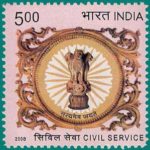NABARD stands for National Bank for Agriculture and Rural Development. NABARD conducts exams to recruit managers and assistant managers. NABARD Grade A officers are mandated with the task of financing and developing the agricultural sector of our country. They help the rural and agriculture-based communities to organize themselves and work towards enhancing the agriculture sector. They look over the implementation and application of various government schemes and policies related to rural and agricultural development.
NABARD Grade B officers have a managerial role. They look over the accounting procedures, facilitating interdepartmental procedures, maintaining customer satisfaction, resolving critical issues, and ensuring coordination between various departments. The salary of a Grade B Assistant manager is Rs 66,864 per month.
Every year thousands of eligible candidates apply for these upcoming government exams. There are separate vacancies for legal, engineering, agriculture, chartered accountants, company secretary, etc. The exam pattern can change sometimes. It is important for you to keep checking the official website for any updates. Download the latest syllabus from the official website of NABARD.
NABARD Grade A exam pattern: This exam is conducted in three phases, preliminary exam, mains, and interview. The preliminary exam has objective-type questions and carries 200 marks. The total time allotted for the prelims exam is 2 hours. The different sections in the prelims exams for the NABARD Grade-A post are summarised below:
| Section | Number of questions | Maximum marks |
| Quantitative aptitude | 20 | 20 |
| Reasoning ability | 20 | 20 |
| Computer knowledge | 20 | 20 |
| General awareness | 20 | 20 |
| English language | 40 | 40 |
| Agriculture and rural development | 40 | 40 |
| Economic and social issues | 40 | 40 |
Phase 2 of the NABARD Grade A exam consists of two papers with 90 minutes allotted to each. The general English section is the descriptive type in phase 2. The second paper has questions from economic and social issues, and agriculture and rural development in India.
If you make it to the merit list after the mains exam, you will be called for an interview. The maximum mark allotted for the interview is 25. The applicants are called in the ratio 1:5.
NABARD Grade B exam pattern: This exam is also conducted in three stages, prelims, mains, and interview. Prelims exam is objective type and total time allotted is 2 hours. The different sections of the syllabus are summarised below:
| Section | Marks |
| English | 40 |
| Reasoning | 20 |
| Quantitative aptitude | 20 |
| General awareness | 20 |
| Computer fundamentals | 20 |
| Economic and social issues | 40 |
| Agricultural and rural development | 40 |
| Total | 200 |
The exam pattern for the mains exam is summarised below:
| Paper | Total marks | Time |
| General English | 100 | 1.5 hours |
| Economic and social issues
Agriculture and rural development |
100 | 1.5 hours |
| Development economics, statistics, finance, and management | 100 | 1.5 hours |
There is a negative marking of 0.25 marks for incorrect answers. Therefore, accuracy is very important in this exam. The final merit list is prepared based on the marks obtained in the mains exam and interview.
Tips to follow
- Prepare for mains and prelims simultaneously. Do not wait for the prelims result to start your preparation for the mains exam. The time gap between both the exams is not sufficient to cover the syllabus of the mains exam.
- Check your current preparation level. Do not get overwhelmed by your weaknesses. The fact that you were able to identify them is important to help you overcome them. Different students have different capabilities. Understand your study methods and make your study plan accordingly. Identify the areas that need improvement and work on them. You might need more time to practice, or you might be spending more time understanding the concepts, whatever is your issue, you must address them.
- Consistency is an important factor to ensure success in NABARD Grade A and Grade B exams. Discipline is the success mantra of any competitive exam. Be honest with yourself. If you have prepared a study plan, stick to it. Do not get carried away with candidates around you. You have limited time for preparation. Promise yourself to dedicate that time completely to your preparations. Consistency in solving questions is necessary. You must practice questions each and every day. It improves your speed and accuracy. Once you feel you have mastered the basic level of questions, you can move up to some advanced level of questions.
- Practice as many mock tests as possible. Mock tests will help you to evaluate your performance and identify the areas which need extra attention. Do not wait till the completion of the syllabus to start solving mock tests. Solve them along with your preparations. You can also attempt subject-wise and topic-wise mock test papers. This will help you to synchronize your preparation with the tests and you can evaluate each section separately. Always choose mock tests that have detailed and complete solutions. Spend some time after each mock test to evaluate your performance and identify the topics where you need improvement.
- Show smart work. Do not spend too much time understanding newly introduced topics. Candidates often make the mistake of spending too much time on a few new topics and compromise with important topics already in the syllabus. Rely on good-quality study materials for reference. Do not try to refer to a lot of resources. Keep your study materials concise and brief. Try to make short notes while reading. This comes in handy during revision. Also, notice the weightage of each section. Plan your timetable keeping in mind the time and marks distribution.
- Focus on English and do not take this section lightly. It carries 40 marks in prelims and 100 marks in mains. So it can alter your score significantly. Do not skip the English section even if you are confident. Some candidates often make the mistake of leaving English for the last time preparation. Do not do this as it is the rank-deciding factor of the NABARD exam. The questions are not very difficult but need practice. Practice reading comprehension and cloze test. You need not perform any calculations hence this section is scoring and if you master this, you can get very good results in the NABARD exams.
Related Posts












